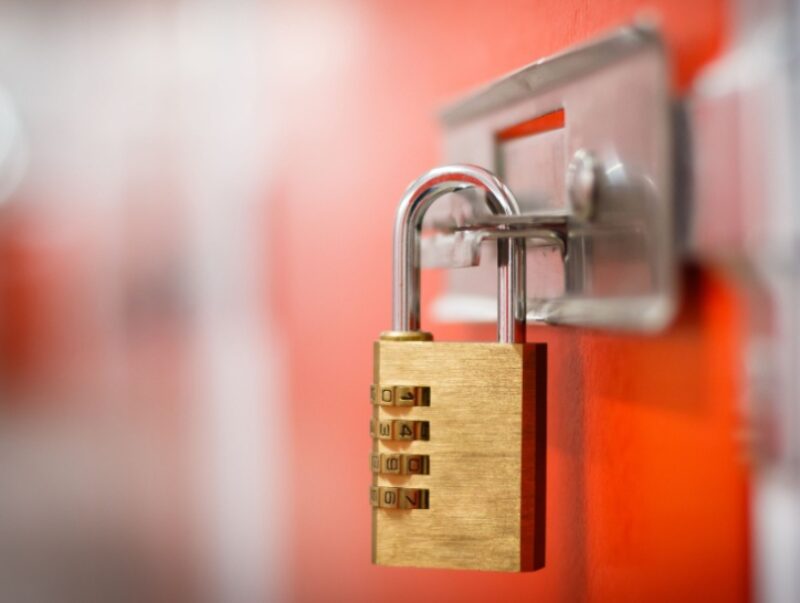Rising interest rates have made headlines recently as many people face increased mortgage costs. However, high interest rates are good news for savers. If you shop around and find the best deals, you could see more growth on your cash savings.
Yet, interest rates may start to fall again, leaving many people wondering whether they should opt for a fixed-term savings account to secure a good rate.
There are pros and cons to this strategy and it’s important to consider your own financial goals when deciding how to hold your wealth.
Read on to learn some important considerations when deciding if you should lock away your savings for a better interest rate.
Interest rates will likely fall as inflation comes down
The last few years have been characterised by high inflation and, according to the Office for National Statistics (ONS), it reached 11.1% in the 12 months to October 2022.
The Bank of England (BoE) raised its base rate 14 consecutive times to bring inflation down. As borrowing becomes more expensive and saving is more attractive, consumers typically spend less, causing prices to fall.
This is why cash savings interest rates have risen recently.
For example, Moneyweek reported that the average one-year fixed-term ISA interest rate increased from 0.56% in November 2021 to 5.2% in November 2023.
However, the ONS reported that inflation was 4% in the 12 months to January 2024. As inflation comes down and the BoE moves closer to its target of 2%, the Bank may reduce the base rate again and cash savings interest rates will likely fall with it.
That’s why you may want to consider locking your savings away now, while you can still secure a relatively high interest rate.
You could secure a better rate if you lock in now
The primary reason for putting your savings in a fixed-term account is that you can lock in the interest rate. This means you continue benefiting from higher growth for a period, even if interest rates fall again soon.
You may want to consider this now as some lenders have already started decreasing their interest rates.
For example, according to MoneySavingExpert, the best one-year fixed-term ISA interest rate was 5.06% on 13 March 2024.
This is lower than the highest ISA interest rate of 5.85% reported by Moneyweek in November 2023. So, interest rates are already showing signs of falling, but you may be able to secure current rates by fixing for a short period.
That said, many lenders are offering lower rates on longer fixes. This is likely because they assume that interest rates will fall considerably in the next few years.
For instance, MoneySavingExpert reports that the best two-year fixed-term ISA interest rate was only 4.7% on 13 March 2024. If you were to fix for five years on the same date, the best interest rate was 4.16%.
These interest rates are still much higher than they were back in November 2021, so locking in could be beneficial if interest rates fall again. However, you may not be able to secure the highest interest rates for more than a year.
Interest rates could rise again in the future
Fixing now could mean that you hold on to a higher interest rate. Yet, it’s worth noting that there are no guarantees that interest rates will continue falling. While inflation is coming down now, it could rise in the future, and this could mean that interest rates increase again.
This could potentially happen in light of potential global political upheaval. For example, the upcoming US election, and one also likely to occur in the UK during 2024, as well as ongoing violent tensions across Europe and the Middle East.
Bear in mind that energy prices were a big driver behind recent high inflation, and they increased due to the war in Ukraine. This demonstrates how sudden global events could spike inflation and lead to higher interest rates.
As such, if you lock your savings away now, there is always a chance you could miss out on higher rates in the future.
Ultimately, you need to consider your own attitude to risk and whether you are willing to forgo the potential for greater returns in the future to secure current interest rates.
You may need access to your savings
You may want to think about whether you need to access your savings when deciding if a fixed-term account is right for you.
For instance, if you hold some of your wealth in cash savings to use as an emergency fund, you typically need it to be easily accessible and on hand to cover unexpected costs.
Conversely, if you already have an emergency fund and have additional cash savings, you may decide to lock that wealth away to secure a better interest rate.
You may need to consider this and ensure you have a healthy emergency fund you can easily draw from when you need it. Once you have this crucial buffer in place, you can explore options for potentially generating more growth on the rest of your savings using a fixed-term account.
It could also be useful to explore alternative options such as investing, which may help you achieve long-term growth and work towards your financial goals.
Get in touch
We can work with you to explore different ways to hold your wealth and generate long-term growth.
Please get in touch to find out how our team of VouchedFor Top Rated planners could help today.
Please note
This article is for general information only and does not constitute advice. The information is aimed at retail clients only.
The value of your investments (and any income from them) can go down as well as up and you may not get back the full amount you invested. Past performance is not a reliable indicator of future performance.
Investments should be considered over the longer term and should fit in with your overall attitude to risk and financial circumstances.
 Investment
Investment Trustee
Trustee

